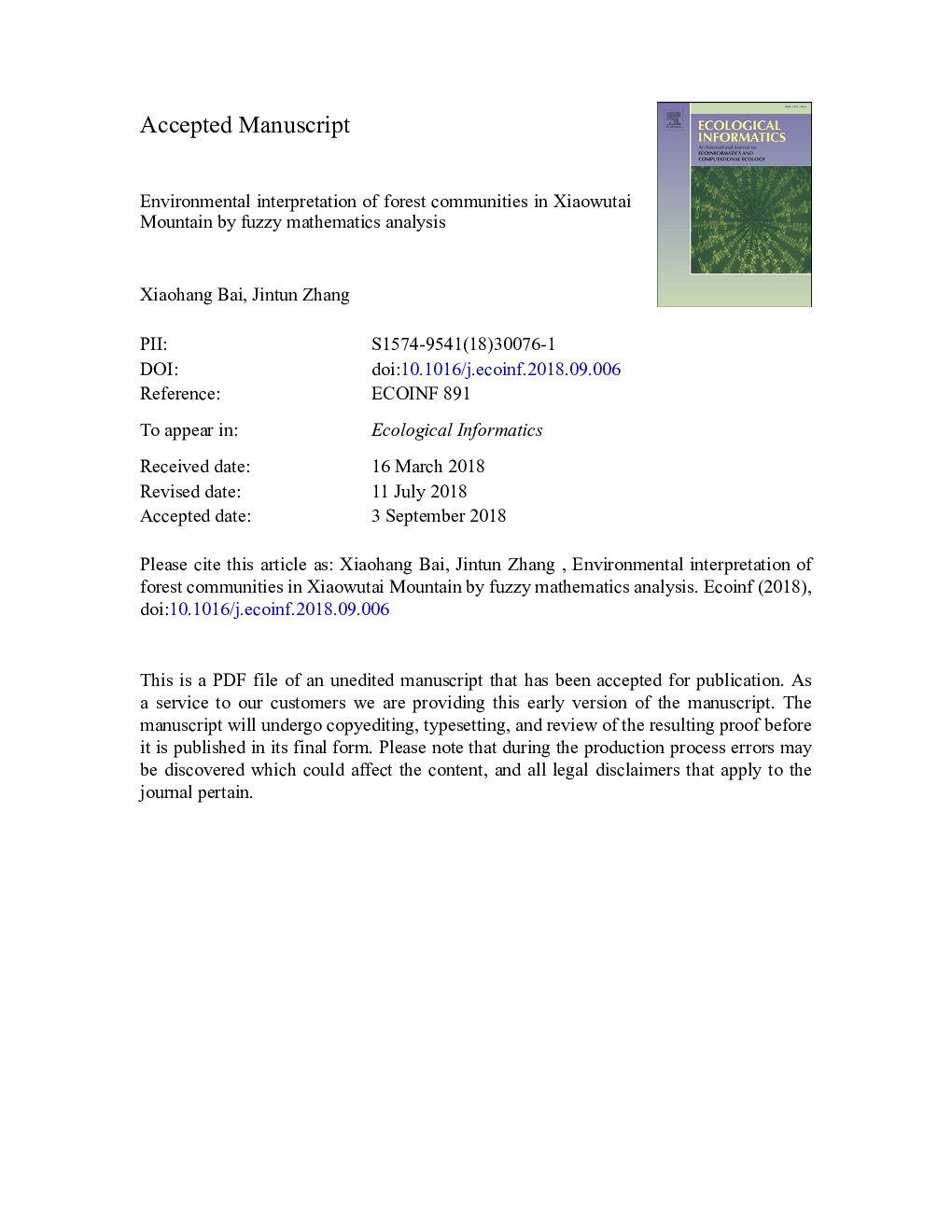| کد مقاله | کد نشریه | سال انتشار | مقاله انگلیسی | نسخه تمام متن |
|---|---|---|---|---|
| 11033386 | 1617187 | 2018 | 27 صفحه PDF | دانلود رایگان |
عنوان انگلیسی مقاله ISI
Environmental interpretation of forest communities in Xiaowutai Mountain by fuzzy mathematics analysis
دانلود مقاله + سفارش ترجمه
دانلود مقاله ISI انگلیسی
رایگان برای ایرانیان
کلمات کلیدی
موضوعات مرتبط
علوم زیستی و بیوفناوری
علوم کشاورزی و بیولوژیک
بوم شناسی، تکامل، رفتار و سامانه شناسی
پیش نمایش صفحه اول مقاله

چکیده انگلیسی
Fuzzy mathematics theory has been recognized as an appropriate approach for dealing with fuzzy uncertainty that is mainly due to incomplete information in ecological problems. The forest communities in Xiaowutai Mountain were analyzed by fuzzy mathematics methods. The results showed that all quadrats (nâ¯=â¯148) which contained a total of 392 vascular plant species in 75 families were classified into 16 groups representing 16 plant communities by fuzzy C-means clustering. The distribution of plant community types in two-dimensional ordination diagram reflected community space variation trends and environmental gradients by fuzzy set ordination. In addition, the ordination results reflected altitude, slope position, litter layer thickness, soil electrical conductivity, soil thickness, soil temperature, soil moisture, disturbance, slope, aspect, soil pH successively affected community distribution along environmental gradients. From the two-dimensional ordination diagram, it seemed that altitude played the greatest impact on forest community distribution in all environmental factors. Analyzing the actual effect of plant community by fuzzy mathematics methods can help us to provide ideas and case studies in ecology research.
ناشر
Database: Elsevier - ScienceDirect (ساینس دایرکت)
Journal: Ecological Informatics - Volume 48, November 2018, Pages 178-186
Journal: Ecological Informatics - Volume 48, November 2018, Pages 178-186
نویسندگان
Xiaohang Bai, Jintun Zhang,